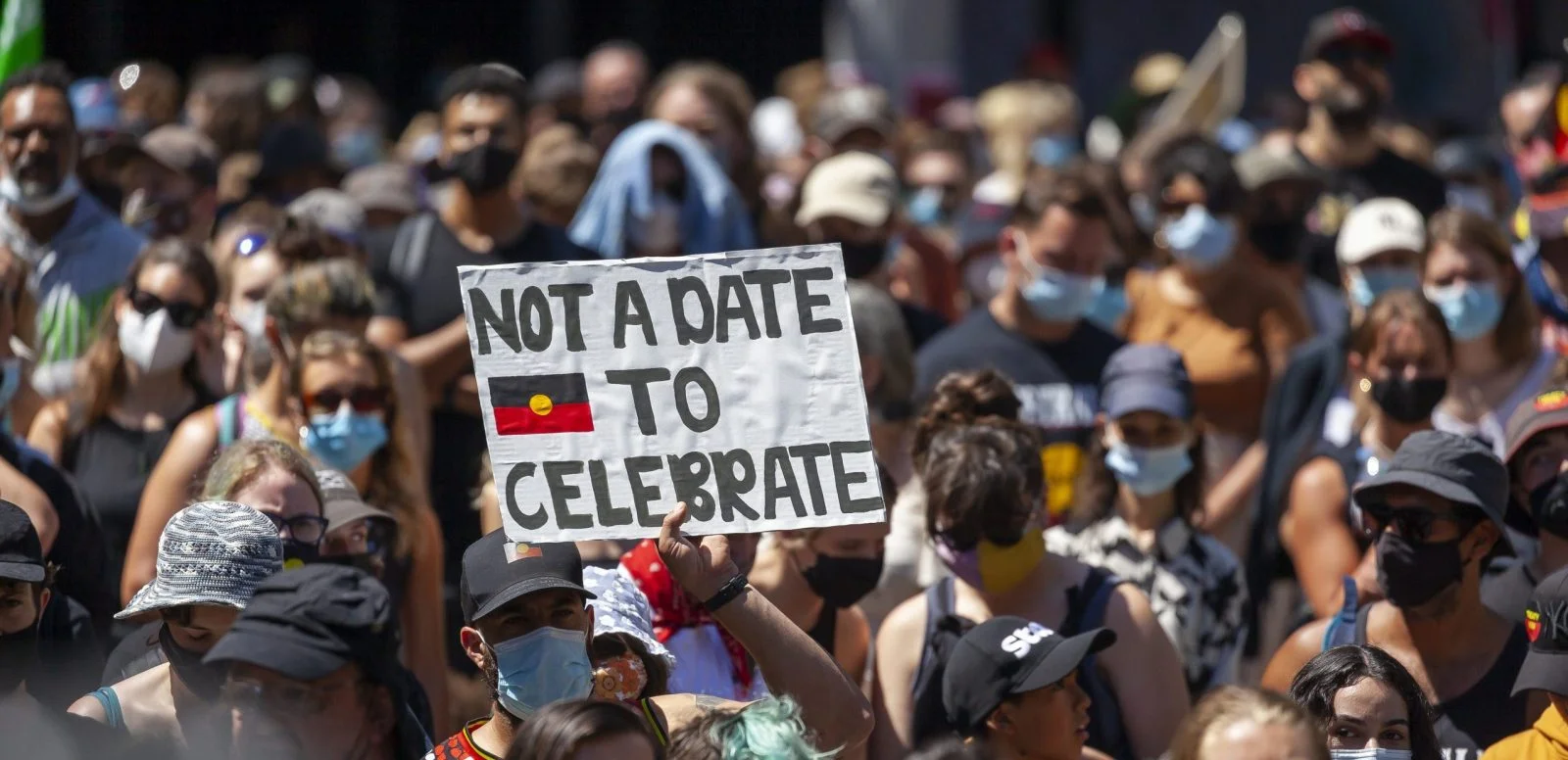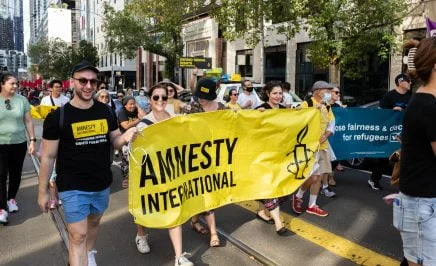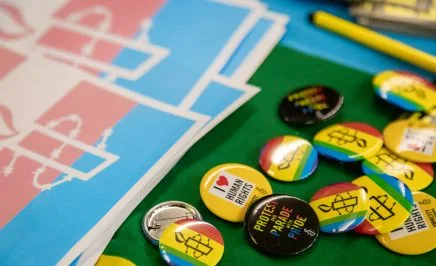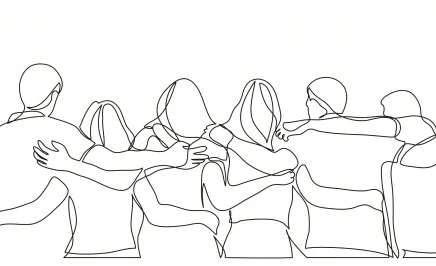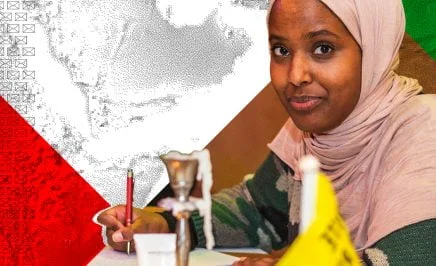Australia Day is a national public holiday, which has been celebrated on the 26th January each year since 1994.
However, for Aboriginal and Torres Strait Islander communities January 26 is a day of mourning. It marks the start of the invasion and colonisation of this country, the mass genocide of First Nations peoples, and the dispossession of cultural practices, language and Country.
January 26 is not an appropriate day for a national celebration. Despite this, Australia remains the only former British colony who celebrates its national day on the anniversary that colonisation commenced in that country.
In 2025, Amnesty International Australia is encouraging all staff and supporters to stand in solidarity with their local First Nations communities and attend Invasion day rallies and events.
What’s Inside the Invasion Day Activist Toolkit:
- General information about the Invasion Day.
- Information about Amnesty’s current Indigenous Justice Campaigns.
- Frequently Asked Questions (FAQ) answered by experts.
- Additional learning resources to deepen your understanding.
- Events you can attend in your local area on and around January 26th.
- How to attend rallies and Invasion day events safely, and ways you can support from home.
Quick links: RSVP to Amnesty Invasion day events, List of all Invasion day events, How to Stay Safe at a Protest, Amnesty Indigenous Rights Overview, Justice Reinvestment Petition, Social Media Tiles
A brief overview:
On January 26, 1788, Captain Arthur Phillip raised the British flag at Warrane, marking the beginning of British colonial rule on Gadigal land. This date, originally commemorated as Foundation Day, has evolved into Australia Day. However, this day also represents the start of the invasion, suffering, and dispossession for Aboriginal and Torres Strait Islander peoples. The true history of these lands spans over 60,000 years, far preceding colonial times.
What’s the issue?
For many Aboriginal and Torres Trait Islanders, January 26 is a day of mourning, symbolising the loss of their ancestors, their land, and their rights. It recalls the devastating impact of the Frontier Wars, the ongoing trauma, and the systemic injustices that continue to this day, including disproportionate rates of Black deaths in custody, health inequities, and the desecration of sacred sites. Celebrating on this day overlooks these painful realities and the resilience of First Nations peoples in the face of ongoing colonisation.
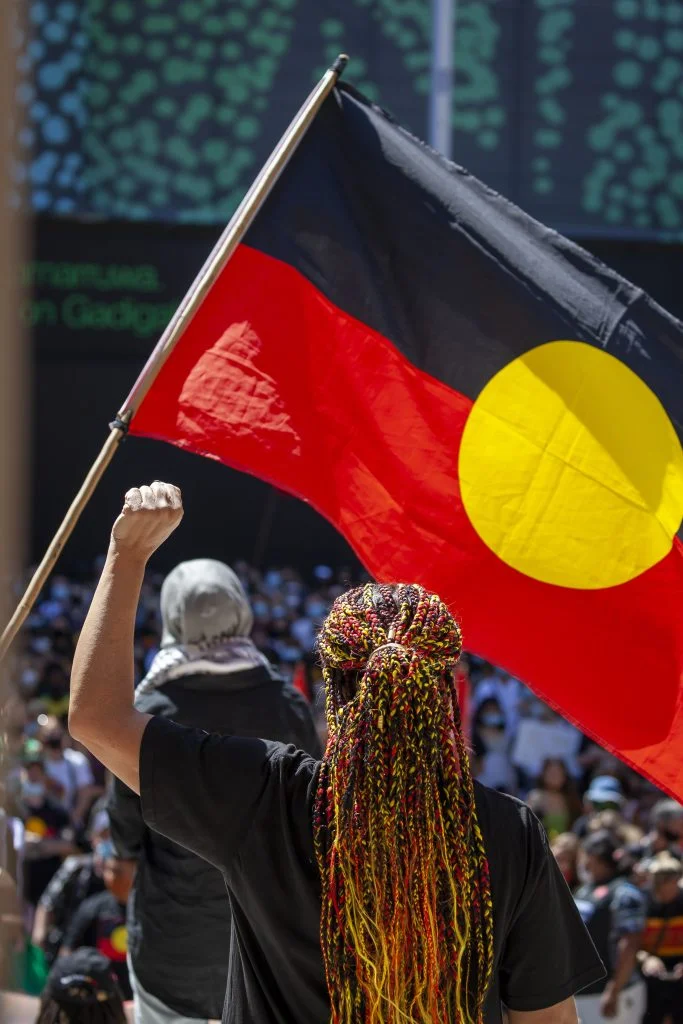
Amnesty’s current Indigenous justice campaigns
Amnesty International Australia is campaigning in Queensland and the NT to reduce the number of Indigenous children incarcerated and ensure their ongoing protection by raising the age of criminal responsibility to 14, in line with international human rights standards.
We are asking the governments of Queensland and the NT to fund culturally-appropriate alternatives to incarceration that centre First Nations voices, address the root causes of trauma and disadvantage, and uphold the principles of self-determination.
Recently, adult watch houses have been used by Queensland Police for the detention of young children. These watch houses are no place for kids and this practice of unsentenced detention deeply harms kids in the long term and must end.
ABOUT JUSTICE REINVESTMENT
Justice reinvestment is an approach managing public resources where money is redirected from prisons to community based initiatives. Justice reinvestment is led by the community, for the community.
Instead of harmful punitive approaches, justice reinvestment is evidence-based. It embraces therapeutic and rehabilitative methods like diversion programs that address the underlying causes of problematic behavior in children, in order to improve it – diverting them away from the criminal justice system.
Diversion programs and services like this already exist all over the country – and they’re incredibly successful
A justice reinvestment approach enables these experts to identify and address the root causes of this behavior, in order to improve it and divert children away from the criminal justice system.
Investment into First Nations-led solutions will immeasurably benefit children, families, and communities. This money will have a huge impact in breaking the cycle of over-representation of First Nations children in the criminal justice system.
Learn more about our campaigns:
Petition : NT Kids don’t belong in prison
Petition : QLD Kids don’t belong in prison
Explainer: Why we need to raise the minimum age of criminal responsibility
Four Corners – Inside a maximum security police watch house where children are locked up
Invasion Day FAQs
Three quick questions answered for you by Amnesty’s Indigenous Rights Team:
Should we change the date, save the date or cancel it all together?
Changing the date will not fix anything – however this is the first and very necessary step towards abolishing Australia Day and the true reckoning that this country needs to have with the injustices that continue to cause suffering today.
First Nations communities are diverse, and as such, there are a range of views about this date. Some Aboriginal and Torres Strait Islander peoples call for the date to be changed, some would prefer January 26 to be renamed and reframed as a Day of Mourning – and others call for the Australia Day to be abolished.
The effects of colonisation are still being experienced by First Nations peoples today, because the way we do things in Australia hasn’t changed. The colonial systems which were designed to benefit settlers and disclude First Nations communities remain in place. These have caused intergenerational trauma and are still having a negative impact on the social outcomes for mob today.
Let’s look at the education system: it was designed from a colonial perspective, sitting in classrooms, reading books written in English, taught by teachers speaking English, and schedules kept by colonial timekeeping methods. And only in very recent times are First Nations languages and perspectives starting to be included in the curriculum. The negative impact of this on Aboriginal and Torres Strait Islander kids throughout the generations has been huge, and this is only looking at one system within our society. Other systems such as health, employment and housing have also excluded and negatively impacted on mob since colonisation.
So, even if Australia did change the date, there is nothing to celebrate until First Nations peoples enjoy the same social justice outcomes as the rest of Australia. As Luke Pearson from Indigenous X says: “You want a day to celebrate Australia. I want an Australia that’s worth celebrating.”
Since it’s a public holiday can I appropriately still spend it with family and friends?
Bypass the Australia Day BBQ and show up this Invasion Day. We have collated a list of all the protest marches in capital cities and other locations around the country, as well as sunrise services and cultural events.
You could go to a local protest march in the morning, then head to your family’s house for lunch so you can have those hard conversations with your relatives who don’t seem to understand the issue.
Dr Amy Thunig gave some advice on how to approach the conversation: “The first question you need to ask the person you’re having the conversation with is why they think January 26 has to be Australia Day. Once you understand their foundational belief that’s driving the passion, you’ll know how to deconstruct it.” Often their arguments are inaccurate and aren’t based on facts.
A good way to decolonise thoughts about January 26 is to learn together. A couple of other questions you could explore with your family include:
– Is it ok that this day celebrates the anniversary of the establishment of Australia as a colony, when Australia is the only Commonwealth country in the world that does not have a Treaty with the First Peoples?
– Is it ok that this day celebrates being a “lucky country”, when First Nations people experience poor social outcomes across the board? Aboriginal and Torres Strait Islander peoples have a much lower life expectancy compared to non-Indigenous Australians, and are massively overrepresented in the justice system, with 558 deaths in custody since the royal commission (three already this year!) and no charges laid. On top of this, Indigenous kids are being removed from their families and community at a higher rate than ever before.
Australia voted No to the Voice. Does this mean that they support Australia Day?
The Referendum question specifically asked about an Aboriginal and Torres Strait Islander Voice, enshrined in the Constitution. It didnt ask whether we should continue to celebrate genocide, or ban Welcome to Country ceremonies for that matter.
Last year was a really rough time for First Nations people, and it was a brutal blow when the Voice to Parliament was so quickly voted down. However, Amnesty’s Cultural Advisor Uncle Rodney Dillon tells us to remember the positive fact that over 6 million Australians voted Yes, and stood firm in their belief that things should improve for First Nations communities.
So, if you are one of these 6.2 million people who voted Yes, then find a way to stand with First Nations people on Invasion Day – and mobilise your family and friends along the way to become active allies too!
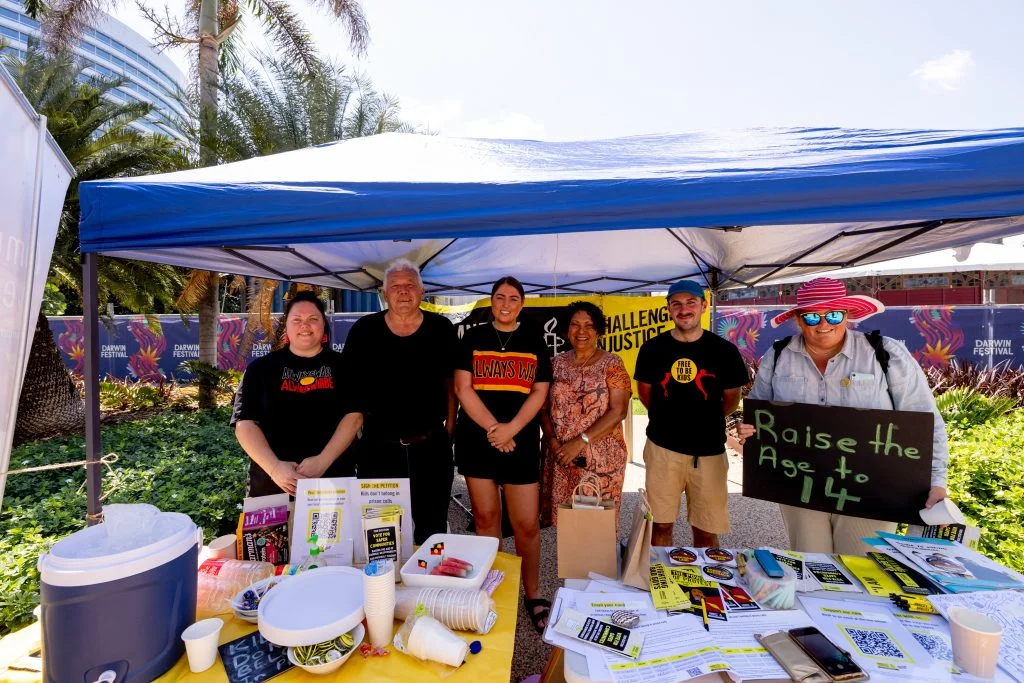
Be informed
Invasion Day events:
Amnesty supporters are encouraged to attend your local Invasion/Survival day event on January 26. A list of all Invasion/Survival day events in each state and territory (and online) that we are aware of can be found below.
For activists located in the below locations, where we have an action centre, there is an opportunity to attend rallies as part of an Amnesty International Australia contingent in collaboration with staff. If you would like to join Amnesty contingents in these regions please RSVP using the links below:
Naarm Invasion Day Amnesty Contingent
Gadigal Invasion Day Amnesty Contingent
Kaurna Invasion Day Amnesty Contingent
We hope to mobilise as many Amnesty staff, activists and supporters at Invasion Day rallies across the country. Rallies will start at varying times and locations, however in cities where have action centres, we will be gathering together there one hour before rallies start.
Demonstrations led by Aboriginal and Torres Strait Islander leaders have had a lasting impact on Indigenous Rights, even amounting to changes to the Constitution after the 1967 referendum. We’re only able to do this work now, because of the Elders who paved the way before us. This blog takes a look at how three historic protests advanced Indigenous rights in Australia.
If you are an Amnesty activist and you would like to organise to attend one of these events as part of an organized Amnesty Contingent, please reach out to activism@amnesty.org.au and we can have your event added to the list.
Invasion Day 2025 Protest Rallies and Events
NSW
| Event name | Details | Info Link |
| Arakwal Survival Day Invasion Day | 26th Jan, 11am Apex Park Arakwal Country, Byron Bay | |
| Bermagui Survival Day | 26th Jan, 11am-5pm Bermagui Oval, Bermagui NSW | |
| Blak Powerhouse | 26th Jan, 5pm start Blak Powerhouse Manning House Manning Road Camperdown Gadigal Land | Website |
| Blak Caucus Invasion Day | 26th Jan, 10am Belmore Park Haymarket Gadigal Land | @blakcaucus |
| Many Mobs – Respect and Hope | 26th Jan, 2pm The Willows, Powell St, Jerilderie | Website |
| Narrungdera Survival Day | 26th Jan, 10am Kurrajong Centre, East St, Narrandera Wiradjuri Country | |
| Yabun Festival | 26th Jan, 10am-7pm Victoria Park, Broadway Gadigal Land | Website |
| Vigil: Truths | 25th Jan, 7pm Barangaroo Reserve, Hickson Road, Barangaroo Gadigal Land | Website |
| Wugulora Morning Ceremony | 26th Jan, 7.30am Walumil Lawns, Barangaroo Gadigal Land | Website |
| Sunset Cultural Ceremony | 25th Jan, 4pm-7pm Burnum Burnum Sanctuary, Woronora | Website |
| Survival Day Griffith | 26th Jan, 11am-3pm Griffith Regional Aquatic Leisure Centre Wiradjuri Country | Website |
| Survival Day Katoomba | 26th Jan, 11am Katoomba North Public School | |
| A Day to Honour Bangang Daangang | 26th Jan, 5pm-9pm The Creator Incubator, 15a/50 Clyde St, Hamilton North | Website |
QLD
| Event name | Details | Info Link |
| Gimuy Invasion Day Rally | 26th Jan, 10am Fogarty Park Gimuy, Cairns | @buddamanny_ @bala_wolz |
| Kunbul Survival Day | 26th Jan 5.30am Dawn Ceremony of Commemoration 10am Survival Day Walk of Solidarity 11am Survival Day Festival | |
| Meanjin/Magandjin Invasion Day | 26th Jan, 10.00am Queens Gardens, Meanjin/Magandjin (Brisbane) | |
| Benarrawa Survival Day | 26th Jan, 7:15am for a 7:30am start Gather at the bronze canoe, near Simpson’s Playground, end of Graceville Avenue, Graceville | |
| Last Sunset: Activist workshop and community dinner | 25th Jan, 3-8pm West End Croquet Club Magandjin/Meanjin/Brisbane | |
| We Have Survived! – Sunshine Coast | 26th Jan, 9am-1pm Sunshine Coast City Hall Corner First Ave and, South Sea Islander Way, Maroochydore | Website |
| Kombumerri history and healing Dawn Ceremony | 26th Jan, 5am-6am Skyridge Cafe Big Hands 49 Parkway Cct, Worongary |
VIC
| Event name | Details | Info Link |
| Celebrate Gunditj | 26th Jan, 11am Gundijmara Country Portland Foreshore | @chrisy_saun |
| Dardi Munwurro Invasion Eve Koori Market | 25th Jan, 2pm-7pm Aunty Alma’s Gathering Place 550 High Street Preston | @dardimunwurro |
| Our Survival Day | 26th Jan, 12pm-5pm The Briars, Mount Martha | Website |
| Pilk Purriyn – Truth Telling at Sunrise | 26th Jan, 5.30am Cosy Corner, Torquay | Website |
| Share the Spirit Festival | 26th Jan, 11.30am Treasury Gardens, Melbourne | |
| WAR Invasion Day Protest | 26th Jan, 10am Parliament of Victoria Spring St, Melbourne | |
| Ballarat Survival Day Dawn Ceremony | 26th Jan, 05.30am View Point, Lake Wendouree | |
| Mildura Survival Day | 26th Jan, 2pm-4pm Jaycee Park, Mildura | |
| Day of Mourning Dawn Service – Mooroopna | Jan 26th, 5.30am Kaieltheban Park, Mooroopna Yorta Yorta Country | |
| Day of Mourning – Shepparton | 26th Jan, 9am-5pm William Cooper statue Queens Gardens Welsford St, Shepparton Yorta Yorta Country |
SA
| Event name | Details | Info link |
| Kura Yerlo Survival Day | 26th Jan, 9am North Haven Surf Life Saving Club, 44 Australia II Ave, Adelaide | |
| Kaurna Survival Day | 26th Jan, 11:30am ACDT Tandanyangga, Adelaide | |
| Mourning in the Morning – Smoking Ceremony | 26th Jan, 7:30am Elder Park / Tarntanya Wama King William Street, Adelaide | Website |
ACT
| Event name | Details | Info Link |
| Aboriginal Tent Embassy Canberra: Sovereignty Day Rally | 26th Jan 6am Dawn of Mourning 10am Rally The Lawns, Old Parliament House King George Terrace | |
| Wurrumay Collective Community Event | 26th Jan, 10am-2pm 102/16 Lonsdale St, Braddon, ACT Ngunnawal and Ngambri Country |
TAS
| Event name | Details | Info link |
| Invasion Day Nipaluna / Hobart 2025 | 26th Jan Street march: Gather at 198 Elizabeth Street at 11:15 AM for an 11:30 AM departure as we march to Parliament Lawns Rally: Meet at 12:00 PM on Parliament Lawns | |
| Limilinaturi/Devonport Invasion Day 2025 | 26th Jan Street March: Gather at Tulaminakali Health Service at 11:30 AM Rally: Meet at 12:00 PM at Market Square, Paranapple Centre | |
| Cygnet Invasion Day gathering | 26th Jan, 8am Burton’s Reserve, Cygnet |
NT
| Event name | Details | Info link |
| Justice Not Jails: Survival Day Picnic | 26 Jan, Meet at 10:30am at Rapid Creek Footbridge. Speeches and sausage sizzle. Everyone welcome, bring a plate of food to share. |
WA
| Event name | Details | Info link |
| Sovereignty Day Protest | 26th Jan, 12pm-1.30pm Forrest Chase | |
| Birak Concert 2025 | 26th Jan, 3pm-7.30pm Supreme Court Gardens 2 Barrack Street, Perth | Website |
| Rubibi Survival Day at Goolarri Media | 26th Jan Gates open 4pm. Event concludes at 11pm Location: Gimme Club at Goolarri Media, Blackman St, Broome | Website |
Online
| Event name | Details | Info link |
| Survival Day: How to Be an Ally on January 26 | 23rd Jan, 1pm to 2pm (AEDT) | Website |
| VALS Invasion Day Webinar | 23rd Jan, 12:30 PM |
No events near you?
If you live in a city or town with no organised events for January 26th, and you would like to assist in organising a local event. We have guides such as these, that help you organise effective events and rallies.
Before organising an event for January 26 yourself, it’s important to first ask if any local First Nations groups or organisations if they are organising any events, or if they feel comfortable with you running and event. Here is some information on reaching out to Indigenous Organisations, and how to find out whose country you are on.
Be Protest Ready!
Before you go, make sure you check out our “How to Stay Safe at a Protest” guide, take note that COVID-19 cases are back on the rise so to take precautions and wear a mask and monitor symptoms.
Social Media Resources
If you are planning on attending an Invasion day event, let your friends know on social media using the below tiles and posts, where you can input the name of whose country you will be attending the protest on.
Note: Some of the resources in the Mob Only folder have been designed by Amnesty’s Indigenous Justice team, specifically only for use by Indigenous people.
Resources to print and bring along:
You can print these poster templates, and use them to make signs for rallies on January 26th
What if I can’t make it to a protest march?
There are heaps of ways you can be an active ally this Invasion Day (and every day), even if you can’t make it to a march:
– Learn about wealth redistribution and donate to First Nations organisations.
– Forgo the public holiday and go to work as usual. Lots of Australian employers allow their employees to work on January 26, and take the public holiday at another time in the year. There is even a movement around substituting the date, which you can read about here.
– Check out the massacres map – what Frontier Wars happened in or near your local area? Make sure you look up the Waterloo Creek massacre.
– Learn the First Nations place name of the land that you live on, and use it daily.
– Support Blak businesses in all aspects of life – Need a plumber? Find a First Nations owned plumbing service in your area.
– Plant a native garden of bush foods and native habitat plants sourced from First Nations nurseries.
– Purchase a First Nations cookbook, and try some recipes. Or book a meal at your local Blak restaurant or cafe.
Social Media Advocacy: Engage in online activism by sharing Indigenous voices and using relevant hashtags. Join discussions to boost awareness and contribute positively to Indigenous rights conversations. You can use the social media accounts we’ve listed above to find accurate and up to date information.
Petitions and Letters: Sign and share online petitions addressing Indigenous issues, and support letter campaigns for change. Your digital voice adds strength to the collective call for Indigenous rights. We’ve linked online and printable copies of our petitions above!
Virtual Learning Events: Attend online events and webinars focused on Indigenous issues. Actively participate, ask questions where appropriate, and share insights to build an informed and engaged online community for Indigenous rights. Antar’s nation list of events includes a Online list of events!
Social justice issues will continue to impact heavily on First Nations communities until a more just and equal society is realised. Our collective advocacy has already made an enduring impact on Indigenous rights, made possible because of decades of growing national advocacy and support for change – it starts with us.
Let’s stay safe, informed, and make our voices heard!
